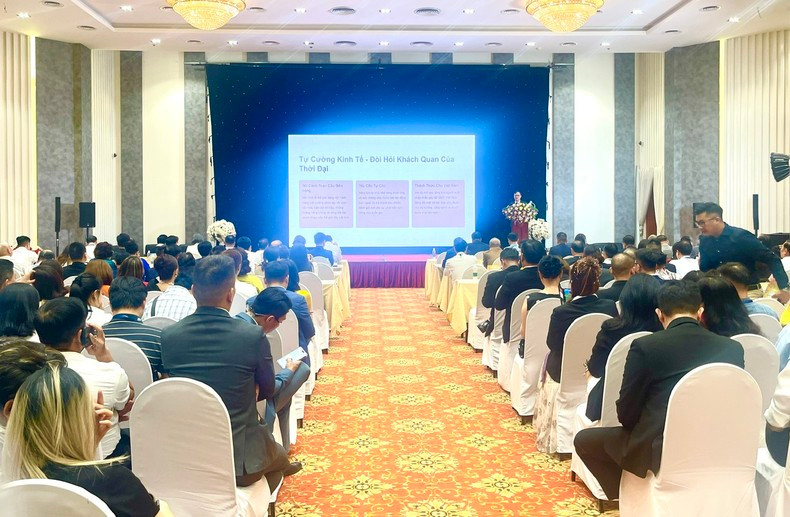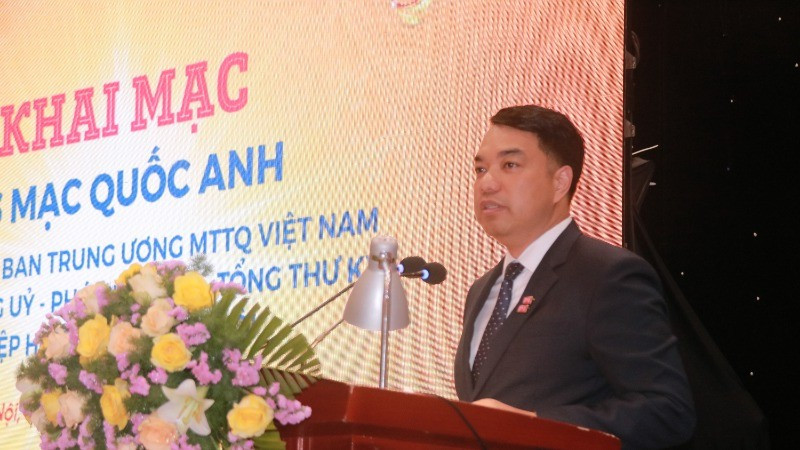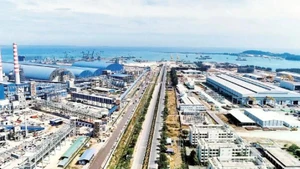In his opening remarks, Mac Quoc Anh stated that in the context of globalisation and digital transformation, Viet Nam has achieved notable progress: inflation remains below 4%, public debt is within safe limits, and the digital economy accounted for around 14% of GDP in 2024, with the target of reaching 20% by 2025. Viet Nam has also risen to second place in ASEAN in terms of e-government development index.
“Beyond economic focus, Viet Nam is gradually fulfilling its green growth commitments. With the goal of achieving net-zero emissions by 2050, the country is prioritising renewable energy development, aiming for over 70% of generation capacity in the electricity structure. The multidimensional poverty rate has dropped below 3%, and Viet Nam ranks 65th out of 146 countries on the Happiness Index – a testament to the country’s comprehensive social progress,” Mac Quoc Anh affirmed.
Participants also noted that Viet Nam is presented with significant development opportunities amid shifting global supply chains, open integration policies, rapid digitalisation, and its youthful population advantage. Foreign direct investment (FDI) is expected to reach 40–45 billion USD annually between 2025 and 2030. Key sectors such as semiconductors, artificial intelligence, fintech, edtech, and healthtech are seen as potential spearheads for Viet Nam’s rise in the global high-tech industrial map.
However, experts also cautioned that without decisive action, Viet Nam faces the real risk of falling into the middle-income trap. The country's current labour productivity is only 62% that of Thailand and 11% compared to Singapore. Additionally, pressures from green transition, climate change, population ageing, and the growing urban-rural wealth gap remain major challenges.
 |
| Delegates attend the seminar. |
Speakers at the event also outlined a national development vision based on three core pillars: a knowledge-based economy and high-tech industry; green and sustainable development; and culture, people, and the aspiration to rise.
Mac Quoc Anh stressed that to realise this development aspiration, Viet Nam must build a broad-based coalition for action, where the Government acts as the orchestrator of policy-making; enterprises are the drivers of innovation and implementation; the banking and financial sector serves as the source of development capital; research institutes and universities provide intelligence and solutions; and the people and communities act as both responsible consumers and active agents of social oversight.
















